
FIRST MILESTONE – Spring / Summer 2023
Background research
Assessing the gap between the competencies/skills developed by higher education institutions and the skills expectations of the labour market, and identification of SKIPPER list of categories:
Identification of the relevant skills and competencies that should be included in the SKIPPER Passport was one of the most important decisions in the project. Therefore, an extensive literature review was conducted by all participating partners with the focus on:
- Competences and skills recognized from institutions such as European Union, CEDEFOP, National Association of Colleagues and Employees, US Department of Education, World Economic Forum
- Desk research focused on competencies and skills of students/graduates that are gained during and outside of the education process and what is required on the labour market.
- Competences and skills framework from projects previous Erasmus+ projects, projects partner institutions participated in and possible relevant national projects.
- Scientific literature review based on papers included in Web of Science and focusing on competence demand and mismatch, gap analysis, needs analysis of target groups in the EU countries, existing skill portfolios, best practices of companies and universities in the field of non-formal education and competence development, learning path development and measurement, competence models and similar.
Categories were discussed and amended in order to arrive at 10 categories where each category would include 3-4 subcategories (31 sub-categories in total). A full agreement was reached for the next 10 categories: flexibility, leadership and organizational category, personal, decision making, ways to create, collaboration, networking and communication, thinking, values, digital category.
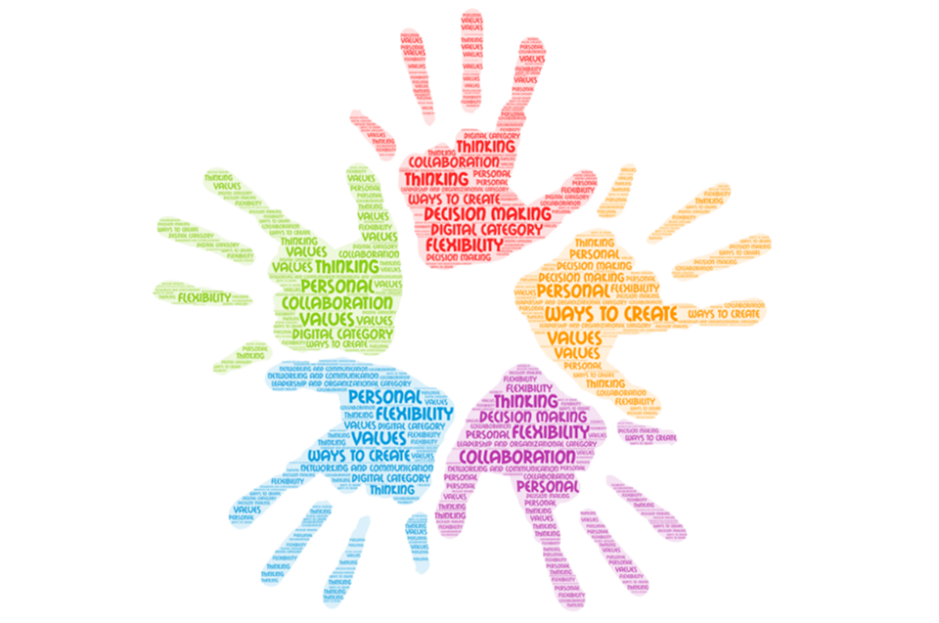
Focus Groups
Eight focus groups were organised in Hungary, Poland and Slovenia that in total included 54 participants, who listed mainly learning paths for the next categories: Collaboration, Decisions, Digital skills, Flexible, Network + Communication, Personal, Thinking, Values, Ways to create.
Focus groups lasted 90-120 minutes and were conducted in the national language or in English, with 6-8 participants per group.One of the two main parts of the focus group explored the different learning paths with the help of a facilitator.
The second part of the focus group explored participants’ views about an application. Here, facilitators tapped into the following topics: the functionalities of the app; the user-interface that would motivate participants to continuously use the app; the motives for potential use of the app.
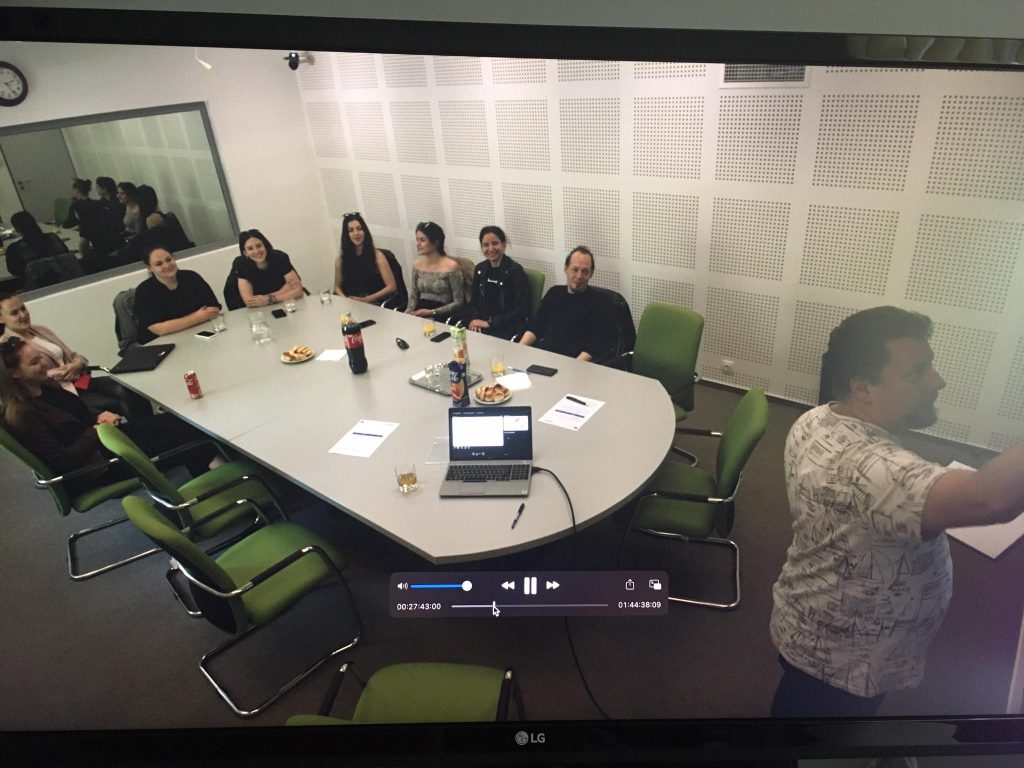
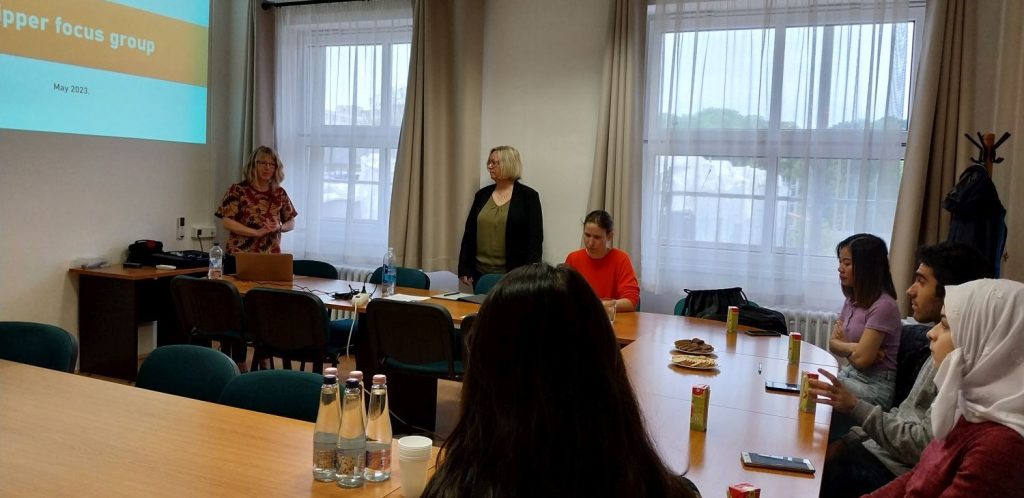
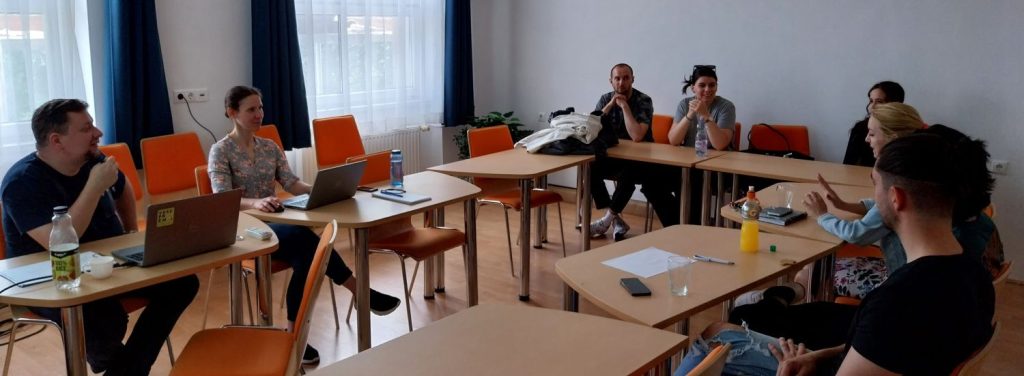
Stakeholder pool
Creating a Stakeholder pool with at least one member in each country and each role. (4 roles: university educator, company HR leader or decision maker, enterprise HR leader or decision maker, SME decision maker): In order for the project to be as useful as possible for students, universities and especially future employers, we have set up an International Consultative Body of Experts which consist of Members from four Countries. The members of the consultative Body will provide us feedback on the materials developed by SKIPPER and help us to develop the prototype of the diploma supplement.
Skills Matrix and Working Competence Wheel
The creation of the skill matrix is based on two approaches. One is the review of fresh literature on skill demand from the world of work and scientific publications on recent studies that are counting the effects of the Pandemic. The other viewpoint is the actual processes of companies that need solid proof that the employees they hire are equipped with the skills needed for the job.
Therefore, we designed the matrix to be easily understandable and ready to use by students and HR experts and company leaders.
The third aspect is the level of education. Partners decided to use the EQF as a reference for the complexity of skills and measurement levels. We examined the competence requirements for the higher education output and found that the 5th, 6th and 7th levels of the EQF are the most suitable in the participating countries.

In the SKIPPER Portfolio, this Matrix will be the backbone of the measurement system, with regard of the Learning Paths and personal development. We also developed the first draft of the measurement tool that will be a tile-based tool that is easy to administer through the screen of a smartphone.
SKIPPER website – Spring 2023
You can tune in to the results and get up-to-date information on the SKIPPER website: https://skipperproject.eu/en/
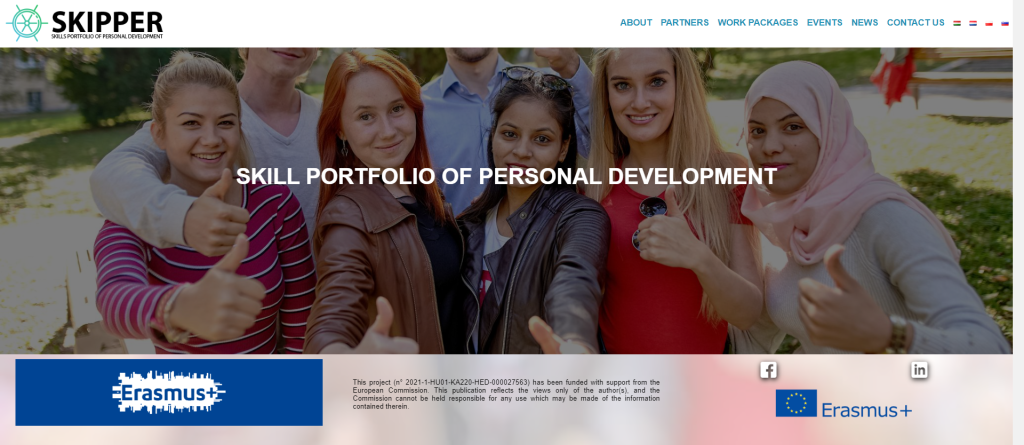
NEXT STEPS – Future issues – 2023 autumn /2024 spring
- Development of Skills Matrix: The Skills Matrix is a useful and flexible tool that includes the main demands of the world of work in the aspect of competence development in HEIs
- Development of a Learning Map: The Learning Map is a smart online tool that helps to visualize the different learning paths with connecting the Skills Matrix’s rubrics with formative and non-formative learning goals.
- Development of first version of the SKIPPER Portfolio: The Portfolio consists of the Skills Matrix, the Learning Map and a Guide on how to use and implement them. It also has offering on a diploma supplement form (the Passport) and an assessment aid of skills and competences.
- Development of Portfolio and Passport in digital format: The final digital format is yet to be designed because we search for the most feasible, understandable and desirable version, but the digital format has to be easy to understand and tailored and desirable by students, educators and employers.
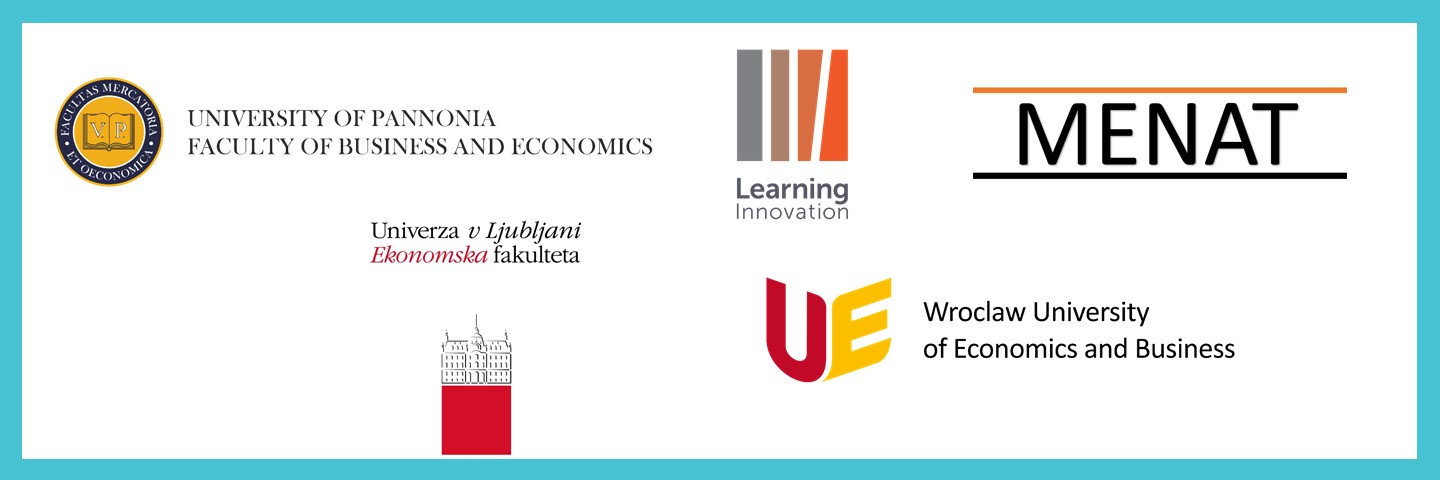
CONTACT DETAILS:
This project (n° 2022-1-HU01-KA220-HED-000086240) has been funded with support from the European Commission. This publication reflects the views only of the author(s), and the Commission cannot be held responsible for any use which may be made of the information contained therein.